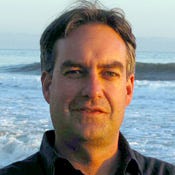Semiconductor Revenue Soars As Economy RecoversSemiconductor Revenue Soars As Economy Recovers
Intel, Samsung, and Toshiba benefited from the chip market's largest ever one-year rise in revenue, reported Gartner.

Pent-up demand due to the economic recession and a recovering economy has sparked the largest ever one-year increase in semiconductor revenue, according to a report from Gartner.
Worldwide semiconductor revenue reached $299.4 billion in 2010, an increase of $70.7 billion, or 30.9% from 2009, according to the report. The rise in revenue was due to a sudden increase in demand as the semiconductor industry was forced to ramp up production, said Peter Middleton, principal analyst at Gartner, in an interview.
"The demand in the chip industry was higher than end-market demand because the supply chain had to replenish itself after the economic plunge in late 2008-09," Middleton said. "That led to constraints that put upward pressure on pricing."
In 2009, Gartner's revenue forecast for the semiconductor industry was at a near-record low, due primarily to the economic conditions caused by the global financial crisis. Yet during the third quarter of 2010, Intel reported that profits soared 59%, driven by increased spending by businesses.
Intel led the pack with the top position for the 19th consecutive year in Gartner's study. The chipmaker had a 14% share of the market, down from 14.6% in 2009. Intel gained market share in some markets, but it lost ground in the total market, mainly at the hands of commodity memory vendors. Intel's revenue was approximately $33 billion in 2009 and rose to nearly $42 billion in 2010.
The second-biggest gain came surprisingly from Samsung, which saw its revenue climb from $17 billion in 2009 to $28 billion in 2010, a 58% increase. Samsung saw big growth for its memory-based semiconductors, Middleton said.
A report from IHS iSuppli market research had similar findings and pointed out that Samsung has challenged Intel's chip market leadership more than any company had in more than a decade
"The rise of Samsung is one of the biggest stories of the last decade in the worldwide semiconductor market," said IHS iSuppli analyst Dale Ford, in statement. "When experts discuss competition for Intel, they almost always focus on Advanced Micro Devices (AMD). While it is true that AMD is Intel's major competitor in the microprocessing unit (MPU) market, Samsung is the primary rival of Intel for overall semiconductor market share. And although they are mainly indirect competitors in the marketplace, Intel and Samsung have been ranked No. 1 and No. 2, respectively, for a number of years."
IHS iSuppli's study found Samsung's revenue increased by 59.1% during 2010, making it the highest performing company in the semiconductor industry. Samsung is the leading provider of DRAM and NAND memory.
Among the major semiconductor categories in IHS iSuppli's study, memory integrated circuits had the strongest growth at 52.4%. The next fastest-rising area was sensors and actuators at 35.5%, followed by discretes at 34.5%.
The biggest growth driver in the memory segment in 2010 was dynamic random access memory (DRAM), which had 75% expansion. NAND flash, the other major segment of the memory market, grew 38.6% in 2010.
Smartphones and tablets also helped drive demand for semiconductors, accounting for 14% of the dollar growth in 2010, Middleton said.
In the Gartner semiconductor study, it was the first year that Broadcom was listed in the top 10, at number 10 and up from 12th place last year. Broadcom had a 53% increase in growth.
"Broadcom was firing on all cylinders in 2010," Middleton said. "They have three business units that did quite well--their broadband business unit for broadband modems, their networking infrastructure business that continues to gain shares, and their mobile wireless division."
Some feared the recent earthquake and subsequent tsunami might disrupt the supply of microprocessors from the likes of Toshiba, who held the third-highest rank in the Gartner study at $9.6 billion in revenue for 2010. However, Middleton said the disruption was far less than initially feared.
About the Author
You May Also Like






